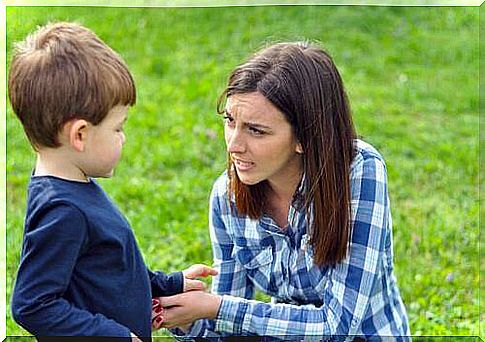Lies Of Children: What To Do? – Being Parents

Children’s lies are part of their social and cognitive development. The first episodes of this fact occur between 2 and 4 years. While it doesn’t sound positive, the lies indicate that children are able to change their own reality.
It is nevertheless important that you cultivate the value of reality during their education.
As they grow older and understand the difference between right and wrong, they need to be helped to choose the right option. Childhood lies are little opportunities to teach honesty lessons.
Why is the child lying?
The causes of this behavior may differ depending on age. The most frequent are:
- Hide behavior to avoid punishment.
- Observe your reaction to listening to a lie.
- Make the stories he tells much more touching.
- Get your attention.
- Get something he wants.

What to do to fight against the lies of children?
Ask him to promise that he will tell the truth
Before asking what happened to a given situation, make an honesty agreement. This commitment, along with a good attitude on your part, often leads children to tell the truth.
If you talk to him understanding but firm, he’ll feel confident and comfortable avoiding lying.
Explain that honest behavior does not result in punishment
When threats are used as a remedy, the results are not satisfactory. The discipline of fear does not work, nor does it encourage it to follow ethical practices.
If you let him know from an early age that telling the truth doesn’t come with punishment, he’ll have more confidence in you. You should also avoid lying to him. Honesty is a value that must be learned at home.
Make a rule at home about the truth
Within family dynamics, establish a rule in gold letters that invites you to tell the truth. Being honest, even when it can have unpleasant consequences, is a gift for life.
Distinguish the cause of the lie
When you know why your child told a lie, it’s easier to make a plan to respond to it.
During the first years, it will be about teaching them to tell the difference between reality and fantasy. As they grow, you can deal with lies told to gain attention, to please others, or to get out of a problem quickly.
Give him a warning
If you are completely sure that your child is lying to you, give them one last chance to be honest. A phrase like “I give you the opportunity to tell me what’s going on” can make him tell the truth.
Explain to him in anticipation what are the consequences of lying
Explain to your child the natural results of lies. When someone is not honest, others will have a harder time believing them.
A good idea is to tell him stories or situations in which dishonesty has worked badly. These examples will help you make tangible associations.

Positively reinforce appropriate behaviors
When your child is telling the truth even though it was not easy to do so, give him a positive stimulus or reinforcement. A compliment can be enough motivation for him to repeat this behavior in the future.
Hire a professional when none of the strategies work
Recognize when the lie becomes repetitive and reaches a great magnitude. This inevitably begins to create a climate of conflict at home or at school. It may be a pathology that requires treatment from an expert.
Do not panic when faced with children’s lies. You have to see them as a sign of their good development and as moments to develop values. It is necessary to carry out the relevant corrections from an early age. In doing so, you will help your family to live with respect for the truth.









